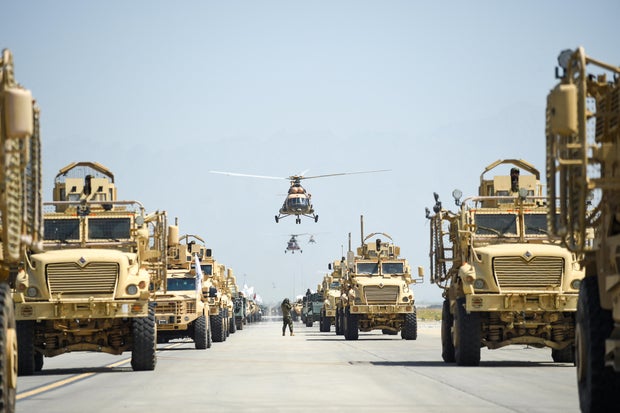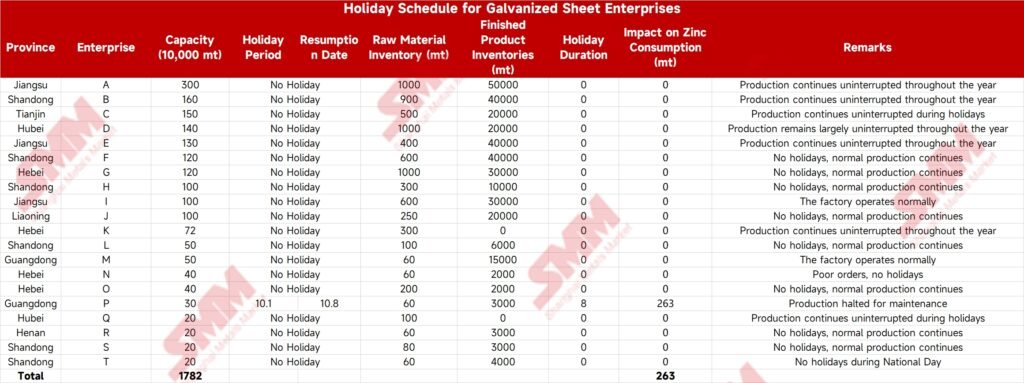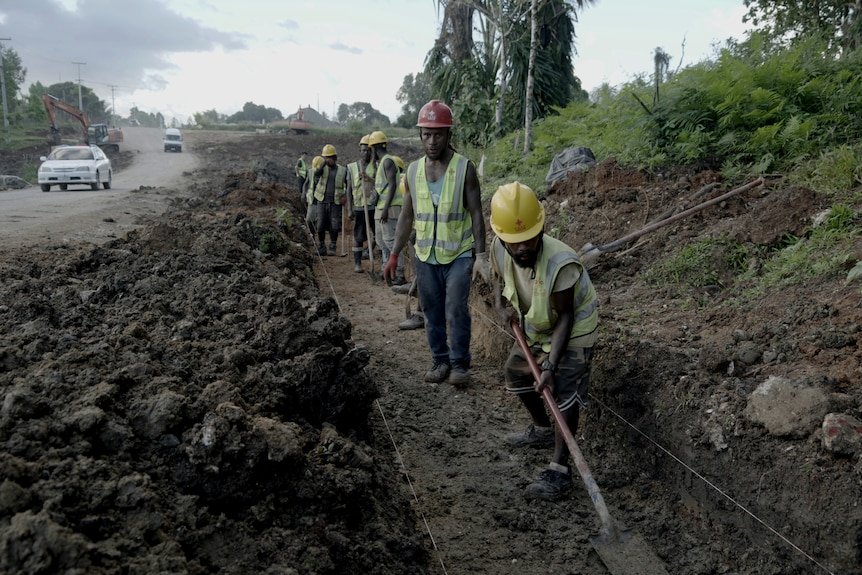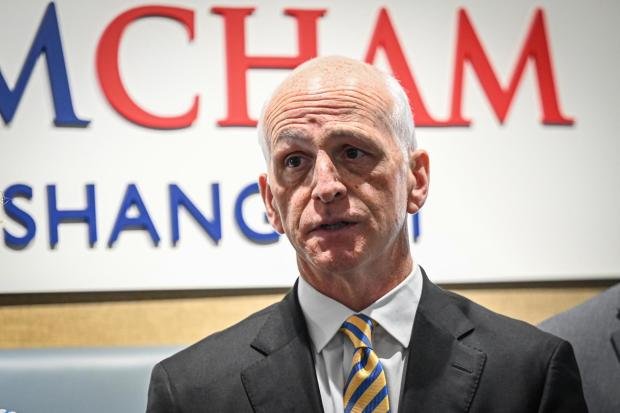Ever since the chaotic American withdrawal from Afghanistan, President Trump has said it was a mistake for the U.S. military to leave Bagram Air Base, in part, because of its proximity to China. Lately, he’s returned to that argument in proposing the base should again be under U.S. control.
“One of the reasons we want the base is, as you know, it’s an hour away from where China makes its nuclear weapons,” Mr. Trump said in London this month, without offering details about how the U.S. would control it, now that the U.S. military is out of Afghanistan. In an interview with Fox News in late 2021, Mr. Trump also expressed concern that China would “take over Bagram.”
China manufactures its nuclear weapons deeper within the country, according to nuclear experts, but there is an old nuclear test range at Lop Nur, about 1,200 miles from Bagram.

Tong Zhao, a senior fellow in the Nuclear Policy Program at the Carnegie Endowment for International Peace, told CBS News in an interview that the last explosive test at the Lop Nur range was conducted in 1996, but he also said there have been signs in recent years that China is continuing to maintain the range, and even expanding it.
The U.S. government is closely watching China’s nuclear weapons program, especially after the Pentagon recently projected China is on pace to rapidly expand its nuclear arsenal to over 1,000 warheads by 2030, up from the estimated low 200s in 2019.
Lop Nur is located in Xinjiang province, which is also home to several missile and aircraft facilities, according to Zhao, who said it’s where China develops advanced aircraft, missile systems, missile defense technologies and aerospace vehicles.
File: Taliban military vehicles parade to celebrate the third anniversary of Taliban’s takeover of Afghanistan, at the Bagram Air Base, in Bagram, Parwan province on August 14, 2024. AHMAD SAHEL ARMAN/AFP via Getty Images 
“Places in the northwestern part of China — that region is the location for many Chinese military testing sites and is responsible for the research and development of various cutting-edge military technologies,” Zhao said. “So, I think that it’s a rich target for U.S. reconnaissance and surveillance.”
But current and former defense officials say there are other ways to monitor China that don’t require a U.S. presence at Bagram. And unless there is a negotiated deal with the Taliban, it could require thousands of troops or more, one former defense official said.
In London last week, the president suggested there could be negotiations, saying, “That could be a little bit of breaking news, we’re trying to get [Bagram] back because they [the Taliban] need things from us.” But days later, the Taliban rejected any plan to hand Bagram over to the U.S.
The chief Taliban spokesman, Zabihullah Mujahid, in a post on X called on the U.S. to remember the 2020 Doha agreement — negotiated during the first Trump administration — in which the U.S. said it “would refrain from the threat or the use of force against the territorial integrity or political independence” of Afghanistan and not intervene in its domestic affairs.
That hasn’t stopped President Trump from threatening on social media that “BAD THINGS ARE GOING TO HAPPEN” if Afghanistan does not give the base “back” to the U.S.
Zalmay Khalilzad, the former U.S. envoy who negotiated the Doha agreement, has said that if other issues between the U.S. and the Taliban were resolved, the two sides could still agree on jointly using the base. “In time, I would not rule out enhanced security cooperation, including the use of facilities such as Bagram, for joint counter-terrorism operations. But it will take persistence,” Khalilzad said in a post on X. The envoy recently met senior Taliban officials in Kabul, as part of a U.S. delegation to discuss prisoner exchanges.
The base, originally built by the Soviet Union in the 1950s, was occupied by the U.S. throughout the war in Afghanistan before the U.S. military turned it over to the Afghan National Army in July 2021. Just over a month later, the Taliban took over the country, including Bagram.
Bill Roggio, who has researched Afghanistan for over 25 years and is the author of the Foundation for Defense of Democracies’ “The Long War Journal,” said in an email, “The Taliban cannot be trusted, nor will the Taliban hand over Bagram to the U.S.”
“The Taliban fought for 20 years to eject the United States, and it will not permit the U.S. to return,” Roggio said.
Eleanor Watson is a CBS News multi-platform reporter and producer covering the Pentagon.






